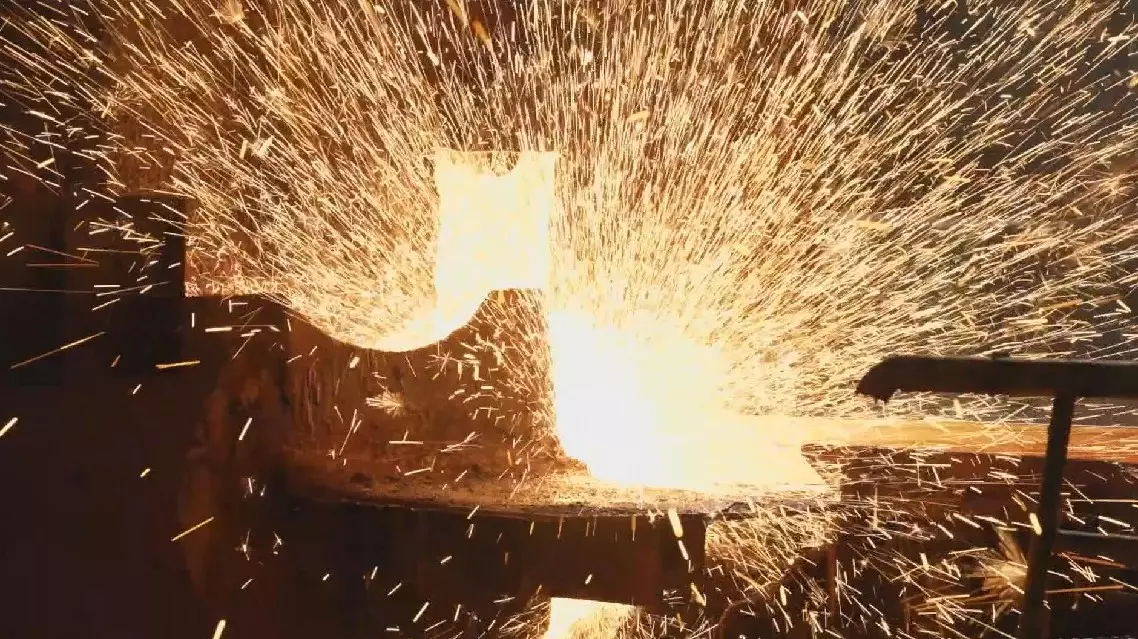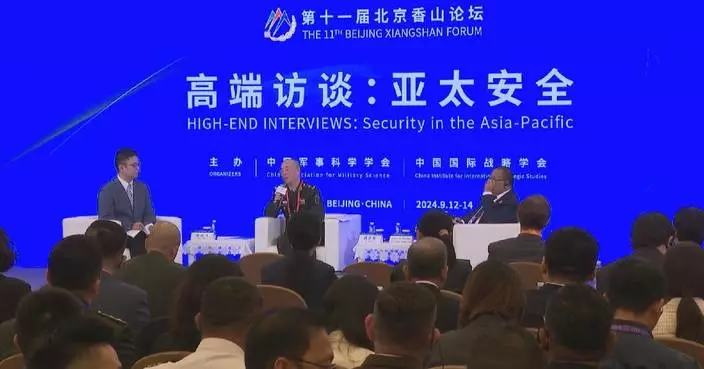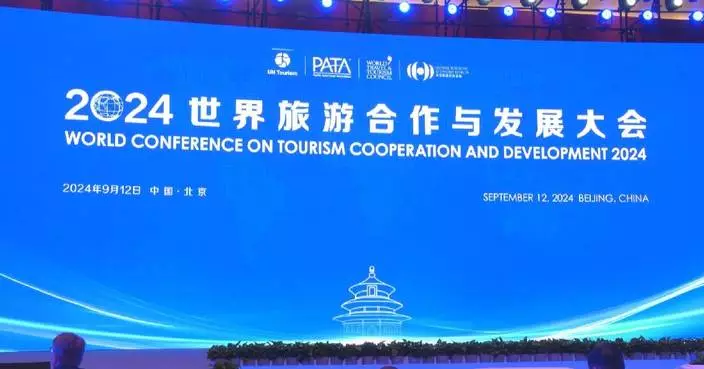Chinese video game "Black Myth: Wukong" has ignited widespread enthusiasm in the Taiwan region, where it has become a cultural phenomenon, sparking intense discussions on TV and social media, with players and professionals alike praising its design, cultural depth, and the strong cross-Strait cultural resonance it evokes.
Following its release on Tuesday, the game quickly reached over two million concurrent players on Steam, a popular video game distribution platform, on Wednesday, marking the second-best result of all time on the platform.
With over 10 million copies across all platforms in just three days after its release, it stands as the most successful Chinese video game to date.
The buzz surrounding the game is evident in the Taiwan region, where it has become a frequent topic of conversation across TV programs and social media. Many players in the region are particularly impressed by the game’s design and its stunning portrayal of traditional Chinese cultural elements.
"In the scene set on the Loess Plateau, when I heard the northern Shaanxi storytelling, the storyteller's strong local accent deeply resonated with me. I felt as if I had forged a profound connection with the culture of that land," said Liu Chang, a game player in Taiwan.
Beyond admiring the game's design, Liu was particularly drawn to the core spirit of perseverance and struggle conveyed by "Black Myth: Wukong", which she said is what keeps her engaged.
She quoted a famous line by late Chinese leader Mao Zedong that describes the bravery and valor of Sun Wukong, the Monkey King from the 16th-century Chinese classic "Journey to the West", which inspired the game.
"Some people chase dreams, while others prefer to observe from the sidelines. What I love about this game is the spirit of ‘the Golden Monkey wrathfully swung his massive cudgel, and the jade-like firmament was cleared of dust’. I hope we will see more high-quality AAA titles and cultural products that tell our own stories," Liu added.
Interest in the game within Taiwan's e-sports community has been strong since the first gameplay video was released in August 2020.
Many cultural industry professionals in Taiwan believe that "Black Myth: Wukong" has sparked widespread discussion, not just because of its meticulous production, but also due to the cultural affinity shared across the Taiwan Strait, which resonates deeply with young people in Taiwan.
"Being a traditional historical story, paired with many ancient architectural scenes and breathtaking landscapes, the game sparks a strong desire to visit these historical sites in the Chinese mainland, especially for those who have never been there. Playing the game fuels this urge, making it an excellent way to promote cross-Strait exchanges," said Kao Shih-chun, secretary-general of the Chinese Animation and Comic Publishers Association in Taiwan.
The release of "Black Myth: Wukong" signifies a bold entry by Chinese game developers into a market traditionally dominated by Western triple-A titles. The term, referring to high-cost, high-volume, high-quality stand-alone games, has long been the domain of Japanese, American, and French companies.
"For me, it's a kind of emotional shift. It's hard to imagine that in my generation, we can now experience content that isn't dominated by Western Hollywood or other game IPs like League of Legends," said Lee Chen-chou, digital competition project manager at Muto Inc.

Video game "Black Myth: Wukong" takes Taiwan by storm
Liaoning Province, one of China's first major industrial bases that boasts a range of industries and sectors such as equipment manufacturing, petrochemicals and mining, has made vigorous efforts to propel traditional industries toward high-end development and played a significant role in the country's development.
A must-see in Liaoning for visitors is the China Industrial Museum in the provincial city of Shenyang.
This remarkable institution, formerly a workshop of the Shenyang Foundry, tells the fascinating story of China's industrial evolution, including the creation of the nation's first metal national emblem.
Liaoning holds a special place in China's industrial history. Not only did it produce the first metal national emblem of China, but it also fostered many "national firsts" that symbolize China's spirit of self-reliance and relentless pursuit of excellence.
The first batch of steel in China was produced in Liaoning, marking the beginning of a new era in the Chinese industry.
At the heart of Liaoning's industrial legacy is Anshan Iron and Steel Group (Ansteel).
Over generations, Ansteel workers have contributed significantly to China's steel industry, producing steel that supports the nation's infrastructure.
"My grandfather was one of the first-generation workers at Ansteel. Despite outdated equipment and technology then, they produced the country's first 12.5-meter-long heavy rail," said Ansteel worker Jin Xu.
Today, Ansteel is able to produce 100-meter-long high-speed railway tracks, and the cumulative length of tracks it produced in over 70 years is enough to circle the Earth's equator 20 times.
From diesel locomotives in the early days to the cutting-edge Fuxing high-speed trains now, China's leading train maker CRRC's branch in Liaoning's Dalian City has been at the forefront of rail transportation.
For aviation enthusiasts, Shenyang Aircraft Corporation (SAC) in Shenyang is a landmark. SAC has produced thousands of fighter jets across 40 models, demonstrating China's significant advancements in aerospace technology.
On the maritime front, Dalian Shipbuilding Industry Company has achieved impressive milestones, including building China's first 10,000-tonne vessel and the first aircraft carrier Liaoning.
The launch of a 175,000-cubic-meter liquefied natural gas (LNG) carrier in May this year marked another milestone for the company in the large-scale LNG transport vessel sector.
Shengu Group in Shenyang is China's first specialized blower manufacturer.
The firm's equipment drives 80 percent of the country's refining installations and 90 percent of its natural gas pipelines.
It's a true powerhouse of industry, continually innovating and breaking monopolies to create vital components for various industrial applications.
In Panjin City, a leading enterprise in optical electronics has emerged as a new industry unicorn.
The company, which started only a decade ago, has developed China's first automated production line for voice coil motors, filling a critical gap for China.
Researcher of the company Shi Yiwei said "Our team, mostly born in the 1990s, holds over 1,600 patents, which is about one new patent in every three days." Shenyang made China's first industrial robot in 1982.
Today, Shenyang is home to the nation's largest industrial robot production base where new-generation robots are being developed with advanced sensing and learning capabilities, designed to handle diverse and complex tasks with unprecedented precision.

China's Liaoning makes vigorous efforts to propel traditional industries toward high-end development










